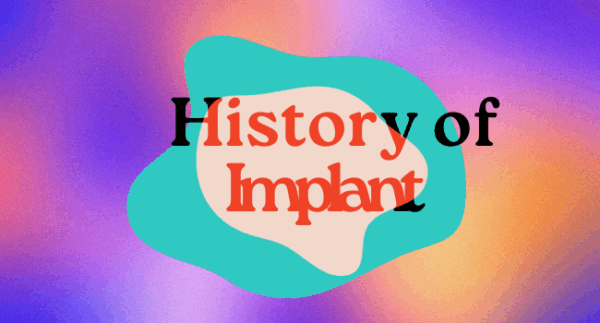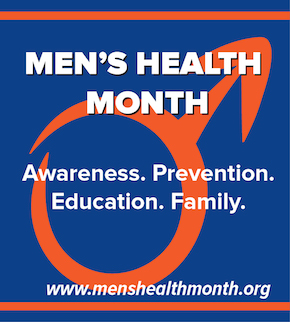Aug 14

Help Us Protect Access to Sexual and Reproductive Health Care Today!
 More clinicians than ever (nearly 1,400!) are part of the Reproductive Health Access Network, RHAP’s national community of pro-choice providers who work locally and across the country to expand access to reproductive health care in their clinics and teaching practices. Since our last update in February, more than ten of our 17 Clusters have met locally- including the brand-new Illinois, Maine, Michigan, Ohio, Oregon, and Washington Clusters. We also hosted Network meetings at both the National Abortion Federation and the Society of Teachers of Family Medicine annual conferences, which brought together clinicians from every part of the country- and even Canada.
More clinicians than ever (nearly 1,400!) are part of the Reproductive Health Access Network, RHAP’s national community of pro-choice providers who work locally and across the country to expand access to reproductive health care in their clinics and teaching practices. Since our last update in February, more than ten of our 17 Clusters have met locally- including the brand-new Illinois, Maine, Michigan, Ohio, Oregon, and Washington Clusters. We also hosted Network meetings at both the National Abortion Federation and the Society of Teachers of Family Medicine annual conferences, which brought together clinicians from every part of the country- and even Canada.
RHAP has also been working with our Cluster leaders to support the development of clinical advocates within the Network. In New York, trainers from The Moth led a storytelling workshop for a small group of clinicians, teaching them to use their experiences to effectively advocate with legislators, the media, and through other venues for advocacy. In Northern California, Cluster members invited staffers from their local representatives’ offices to come meet with the group and discuss how clinicians can support progressive bills such as the Healthy California Act. Many Clusters have also begun ramping up advocacy efforts within professional organizations such as the American Academy of Family Physicians.
Finally, Physicians for Reproductive Health has been connecting the RHAP Clusters with local graduates of their Leadership Training Academy in almost every state where we have local networks. LTA alums are physicians who have participated in a rigorous advocacy training program, and these great folks have been lending their time to lead “Advocacy 101” trainings in California, Colorado, Maryland, and Rhode Island (with more to come). We are so grateful to PRH and our other partners for helping us strengthen our communities and fight back together against attacks on health care.
If you are a clinician and would like to join the Network, please sign up here. If you are a provider living in an area where we have a Cluster and would like to be connected, please email Laura Riker, Senior Program Manager, at laura@reproductiveaccess.org.
 The Shrill Collective is a group of female-identifying artists striving to affect positive change in their community through the performing arts. They seek to create space for women’s voices and issues to be heard while raising funds for charitable organizations through intimate readings and stagings of contemporary, classical, and original works.
The Shrill Collective is a group of female-identifying artists striving to affect positive change in their community through the performing arts. They seek to create space for women’s voices and issues to be heard while raising funds for charitable organizations through intimate readings and stagings of contemporary, classical, and original works.
The six founding ladies are Allison Wilkes Bourland, Kristina Geddes, Lynda DeFuria, Chelsea Feltman, Erin Dahl, and Ashley Croce. “We’re all in the same acting studio, Matthew Corozine Studio, and the idea that propelled this collective actually came from a Facebook post. Erin had posted an article about another Republican effort to cut off reproductive health services with a cheeky caption that perhaps we needed to impose a hook-up ban on Republican men until we could get the rights we deserved. Chelsea quickly commented saying that Erin was describing a modern day ‘Lysistrata,’ and Ashley immediately followed up by saying that we could do it as a short play or internet sketch. Allison was wise enough to point out that we had a space at MCS where we could put it up. Soon, Kristina and Lynda were on board and we got our first production rolling!”
The team met a few weeks later with the intention of doing a staged reading of ‘Lysistrata’ to benefit an organization that fights for women’s rights. “RHAP had been on our radar after our member, Chelsea, attended The Anti Inaugural Ball that helped benefit RHAP. We had a vote and unanimously agreed that RHAP was the best organization for us to raise funds for.” This collective has become a passion project and artistic priority for the group. “We are all politically-minded and active individuals and our art is one of our forms of resistance.”
Something that disturbs all of the members of The Shrill Collective is “…the effort to cut off access to women’s health services. RHAP’s commitment to training primary care physicians so that all women can have access to these vital services is important work, especially in our current political climate. We don’t need men in suits playing politics with our lives and bodies.”
On June 3rd, The Shrill Collective kicked off their new series called “Netflix and Shrill” with a live read of the screenplay of “9-5.” The purpose of this series is to raise funds for rehearsal spaces and other expenses so that money from The Shrill Collective’s main projects can go to the organizations they support. These readings are casual, affordable ($5), and are cast the night-of from the audience. To learn more about future events in this series, and The Shrill Collective’s other works, you can find them on Facebook as “The Shrill Collective” and Instagram @theshrillcollective.
 Reproductive health is an important component of overall health for everyone. Males, however, are often overlooked in discussions of sexual and reproductive health, especially discussions around contraception. This June, in honor of Men’s Health Month, we are highlighting resources that focus on birth control options for men.
Reproductive health is an important component of overall health for everyone. Males, however, are often overlooked in discussions of sexual and reproductive health, especially discussions around contraception. This June, in honor of Men’s Health Month, we are highlighting resources that focus on birth control options for men.
Your Birth Control Choice Fact sheet highlights all available reversible birth control methods. Because many of the methods are used only by females, RHAP developed our Birth Control for Men fact sheet, which focuses on the male-only methods.
One area we have worked hard to highlight as a great option for males is vasectomy. Our Permanent Birth Control fact sheet compares male and female sterilization options. Compared to female sterilization, vasectomy is simpler, less expensive, and less likely to cause complications. Vasectomy is over 99% effective. Yet, in the US, only 5% of men have a vasectomy, while 15% of women have some form of permanent sterilization. Given its many advantages, we need to ask ourselves – why is vasectomy so underused?
Many people fear that vasectomy will harm them, possibly causing cancer or impairing sexual function. However, studies have shown that some people actually experience an improvement in libido and sexual pleasure when they no longer need to worry about unintended pregnancy. The no-scalpel technique, which requires no cutting or suturing, leads to a quicker recovery and is easy to incorporate into primary care.
This June, think about how you can talk about contraceptive options with the males in your life.
 The Reproductive Health Access Project (RHAP) is currently seeking a Development and Communications Intern to support our small staff as we continue to fulfill our mission of ensuring that reproductive health is accessible to all.
The Reproductive Health Access Project (RHAP) is currently seeking a Development and Communications Intern to support our small staff as we continue to fulfill our mission of ensuring that reproductive health is accessible to all.
This is a unpaid, local opportunity for applicants based in the New York City area. This internship is perfect for an enthusiastic self-starter wanting to develop their administrative skills and gain more exposure in the reproductive health field. Information on how to apply is listed below.
We are looking into a late August/ early September start date. You can click here to find more detailed information about this opportunity on our website.
How to Apply:
Send a cover letter, resume, three references, and short writing sample (1-3 pages) to hr@reproductiveaccess.org. Please indicate the name of the internship position you are applying for in the subject line of your email. Only complete applications will be reviewed. Application deadline is rolling. We will accept applications on a first-come, first-serve basis.
Your gift allows us to train and support health care providers across the United States so they can offer patients compassionate and comprehensive care.
Aug 14
